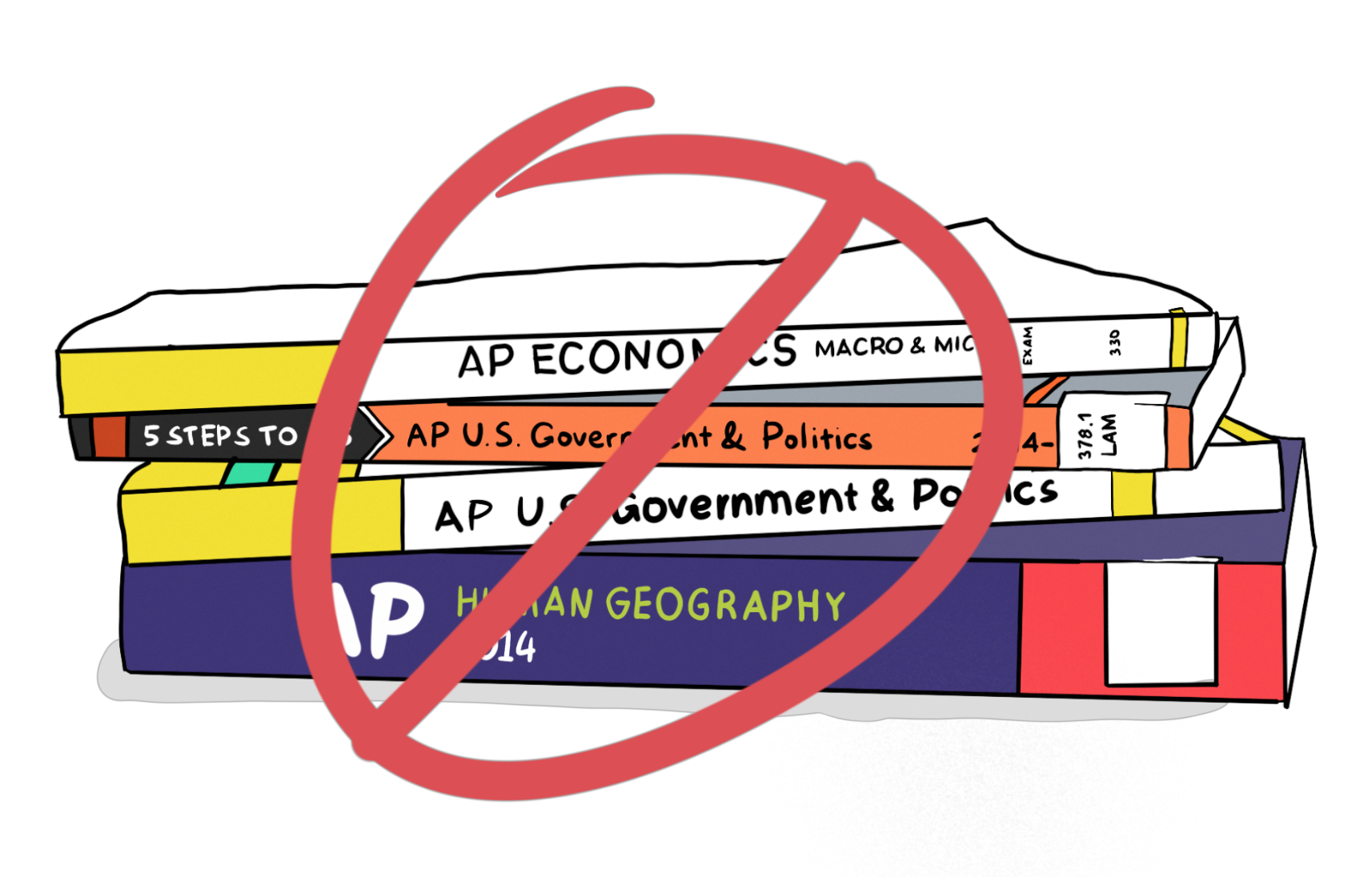Deerfield Academy holds a strong reputation among the New England boarding schools for its rigorous and intentional academic programs. The Academy offers college level courses in many departments, ranging from biology to calculus to Spanish.

Although Deerfield’s mission is to prepare students for a rapidly changing world, Deerfield’s academic curriculum does not seem to be adapting to the rapidly changing world of education. The Advanced Placement classes and their syllabi have been hindering Deerfield from progressing as an institution namely for four main reasons: function, time, money and pressure.
Developed in the 1950s, the AP exams were designed based off an experiment done by three prep schools: Lawrenceville, Exeter, and Andover, with three colleges, Harvard, Yale, and Princeton. The outcomes were predictable. Students from these prep schools who went on to enroll at these colleges ended up taking classes which repeated material they learned back in high school. Therefore, in order to allow high school students to place into the appropriate classes and to earn college credit, the College Board developed the AP exams and their syllabi.
Sixty years later, the AP Exams do not serve the same purpose anymore. According to a study done by the Progressive Policy Institute, “Eighty-six percent of the top 153 universities and colleges in the United States restrict the awarding of AP credit.” Furthermore, schools such as Brown University, Dartmouth University, Williams College, and Amherst College, schools in which Deerfield graduates frequently enroll, simply do not accept any AP credit. Is it not a waste for students to spend $81 per exam to not receive credit for anything?
If students want to show colleges that they are capable of taking college level work, I do not believe that the AP syllabus is a good representation of that. Deerfield teachers are well aware of the present-day college syllabus, yet we stubbornly choose to follow an anachronistic syllabus. Could Deerfield teachers plan out a curricula in which it is recognized on the course catalog that it is par with the college level courses? Deerfield Academy has already formed strong and trusting relationships with colleges that if the Academy says that a course is college level, colleges will wholeheartedly believe the institution.
The AP classes also take the learning away from the coursework. The College Board has overloaded the AP Exams with material that cannot be covered through one school year without rushing through it. This overload puts pressure on the teachers who teach these classes. In classes such as Honors United States History, Honors European History, Latin IV, faculty members often feel forced to rush the students. In a humanities classroom, which thrives off of good discussion and meaningful questions, it is not fair to the students who want to learn the material rather than to be prepared for a meaningless exam in May.
Deerfield Academy attracts some of the brightest students in the country. However, often times those students put pressure on other students. This has been a problem because of AP courses. Often times, students feel burdened to take a certain course because it has been labeled as AP. This endless cycle of adding AP classes and exams to the student’s schedule has led to an extremely toxic and competitive cycle at Deerfield. I urge all of the departments, particularly those with classes following the AP syllabi without even being labelled “AP,” to abandon the AP curricula. So much learning happens when the burden of preparing students for an exam is dropped.
AP exams are a financial burden to many families. The AP exams come at a jaw-dropping cost, as regular AP exams are priced at $81 and the seminars exams are priced at $142. This price should be considered expensive to everyone. Some of my peers in the junior class have mentioned that their bill for AP exams totaled up to $800 and sometimes a grand. This should not be happening.
AP exams are a severe burden on a lot of the students. Even for families who are on financial aid at Deerfield, fee waivers are often denied because of the strict qualifications to receive them. For exams that do not determine college success or learning ability, no families should feel financially pressured to spend hundreds of dollars on AP Exams.
Deerfield students are very focused on college success to the point where I heard in one of my classes, “I need to take this AP exam so that I can go to college.” That environment is toxic because students are spreading a notion that AP scores determine college success.
University of Chicago is one of the colleges that have taken a clear stance that AP scores or test scores in general will never determine the candidates admission. Yet, there still seems to be a misconception that AP exams are significant to the college process.
Our peer schools such as St. Paul’s School and Phillips Exeter Academy have dropped the AP syllabus from their curricula. Although Deerfield Academy’s English, history, and language classes are not labeled as AP classes, they have been following the AP syllabus. Why are we following an outdated syllabus when we can learn so much more and truly be prepared for a rapidly changing world?

